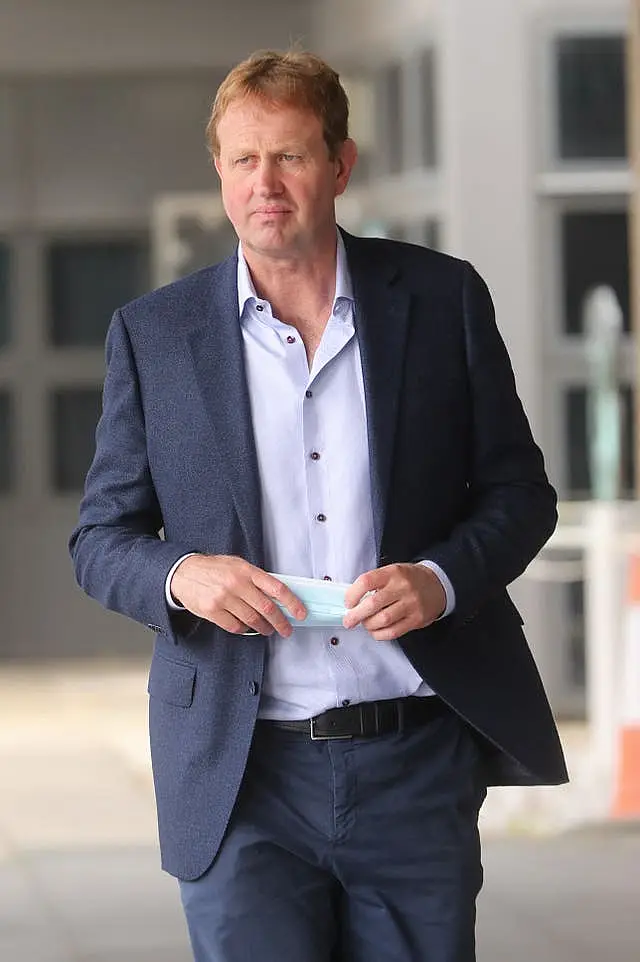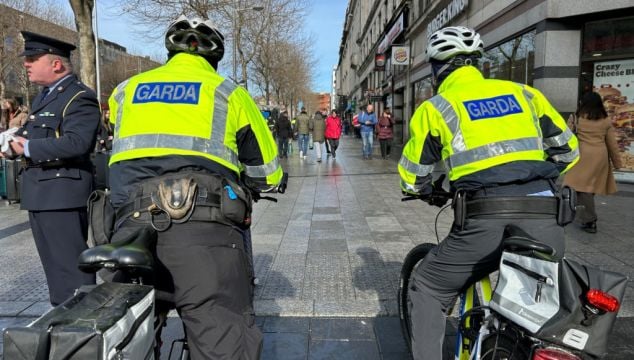The Lord Mayor of Dublin has said that more gardaí on the streets of the capital’s inner city would limit the freedom of “thugs” or gangs carrying out unprovoked attacks.
Daithí de Róiste also said that the use of social media makes it easier to draw attention to attacks in the city, and encouraged people who do share anti-social behaviour incidents to Instagram or Twitter to also report it to the gardaí or Dublin City Council so that incidents can be investigated and tracked.
Earlier, a TD claimed that parts of Dublin’s inner city have “elements of lawlessness” to them and called for changes to garda recruitment criteria.
Local politicians have warned that parts of the capital are unsafe in the wake of an attack on a US tourist that left him with serious injuries that requires hospital treatment.
And it comes weeks after a young Ukrainian actor needed stitches after being attacked near the Abbey Theatre, where he was performing in a Kyiv production of Brian Friel’s Translations.
Public representatives have warned that a lack of a police presence has resulted in open drug taking and dealing on some side streets of Dublin, as well as an increased threat of random assaults.
Dublin Lord Mayor Daithí de Róiste told PA: “There is an anti-social behaviour problem in the inner city.
“The guards themselves, they do what they can to the very best of their ability, with the resources that they have. But it’s clear we have an issue and it needs to be resourced properly and that comes from a Departmental level.”
Responding to the Minister for Justice’s statement on Thursday that there will be 450 garda recruits in training by the end of July and that 420 foot and bike patrols have been launched from the new O’Connell Street Garda Station since it opened, Mr de Róiste asked what net increase those figures represent.
Mr de Róiste, who was elected to the mayoral role three weeks ago, said: “I’m going to be looking to do a lot of drilling down into those figures, particularly in the joint policing committee that we have on Monday with the Assistant Commissioner [for Dublin Metropolitan Region, Angela Willis].”
Asked whether he feels safe walking through the streets of Dublin, he said “yes”, but added that “we can do a better job of making people feel safe”.
He said: “High visibility policing is the key for people to feel safe or the perception to feel safe.
“What we need to do is have more of An Garda Síochána on our streets engaging communities. They’re so hard-pressed, they’re bouncing from call to call to call, and we need the passive policing of having guards on the streets and that makes people feel safer.
“Also, thugs, antisocial-behaviour gangs, whatever which way you want to put it, that are dragging down the name of this great city, they get less freedom to operate with more guards on the streets and with more visibility policing.”

Dublin TD Jim O’Callaghan said that the retirement age for gardaí should be increased from 60 to 62, and people aged over 35 should be allowed to join the force.
The Fianna Fáil justice spokesman said the State’s drugs policy was failing and needed to put people with “devastating levels of addiction” at the centre of the next strategy.
The citizens’ assembly on drugs use has met three times this year so far, with a further three meetings due to be held in the autumn.
Mr O’Callaghan also warned that changes needed to be made to the eligibility criteria as Ireland struggled to recruit new gardaí.
“We have a problem with recruitment,” he said.
“In fairness to Government, it has provided funding for 1,000 new gardai this year. Last year we provided funding for 800; we were only able to recruit 300. This year, I’m afraid to say we won’t be able to recruit 1,000 new gardaí.”
Mr O’Callaghan told RTÉ’s Morning Ireland: “We need to start looking at innovative new methods to keep numbers up or to grow numbers within the force. We should be looking at increasing the retirement age, we should be looking at getting rid of the discriminatory rule that says you can’t join the gardai if you’re over 35.”
He said there were fewer than 14,000 gardaí in Ireland, which was the same level of gardaí as there had been 20 years ago, but that the population had increased and new laws had been enacted since then.
He added: “I think we need to be clear: we’re always going to have some level of criminality in the inner city of all capital cities and major cities.
“The problem here is that there is a perception, and it is a reality, that there is a lawlessness in certain parts of the inner city.
“The only way that is going to be reduced is to have a serious garda presence there.”
“We need to attract more people into the force, we’ve not even 14,000 [gardaí] and a population of five-and-a-quarter million. It’s not enough.”
Minister for Justice Helen McEntee condemned on Thursday the “brutal” attack on the US tourist and warned of “a tough and firm response” to what she said was unacceptable “thuggery”.
“People must have confidence they can safely walk the streets of our capital. I am in regular contact with Commissioner Harris on the issue of Garda visibility,” she said.
Ms McEntee said she would be in Templemore next week for the passing out of new gardaí.
“I will be in the Garda College every three months thereafter to see new recruits graduate as recruitment picks up pace after a Covid-enforced pause,” she said.







